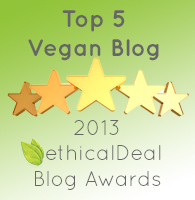 Women who eat just one and a half portions per day of red meat per day may be raising their chances of developing breast cancer by more than 20%, according to a new study published in the British Medical Journal. Researchers studied the diets of 88,803 premenopausal women, aged 26 to 45, participating in the Harvard Nurses Health Study II over 20 years, from 1991 to 2011.
Women who eat just one and a half portions per day of red meat per day may be raising their chances of developing breast cancer by more than 20%, according to a new study published in the British Medical Journal. Researchers studied the diets of 88,803 premenopausal women, aged 26 to 45, participating in the Harvard Nurses Health Study II over 20 years, from 1991 to 2011.
Those women who ate one and a half portions of red meat, which is about 2 oz. or a small steak, hamburger, 2 slices of bacon or several slices of ham, were 22% more likely to have developed breast cancer compared to those who had none or very little. The research indicated that every extra serving of red meat consumed daily increased a woman’s risk of breast cancer by 13%. Statistics show that 1 in 8 women will develop breast cancer.
 The cause and effect has not been absolutely proven but a correlation is clear. Forbes.com explains:
The cause and effect has not been absolutely proven but a correlation is clear. Forbes.com explains:
“One possibility is that red meat has been shown to release carcinogens when cooked at higher temperatures. Additionally, hormones given to food animals may linger in the meat and when consumed, may increase a person’s hormone levels – cancer is well known to be dependent on the hormone environment. High-protein diets in general have also been linked to cancer risk, possibly since protein intake influences the level of growth hormone IGF-I, which can trigger cancer cell growth.”
Vegan American Princess cares about your breasts and your whole body, as a matter of fact. We know you’re not all vegans out there but you’re open to change, suggestions and new ideas that will benefit yourselves, your loved ones, the planet and all animals. It’s so easy to swap some of those hamburgers and hot dogs for great recipes we’ve got all lined up here on the right! Try one! Make one change every day—you’ll see how easy and satisfying it is! That’s the kind of cancer prevention I can get on board with==get on board with me!
Forbes.com article: Too Much Red Meat May Increase the Risk of Breast Cancer
British Medical Journal: Dietary protein sources in early adulthood and breast cancer incidence
xox Ellen







